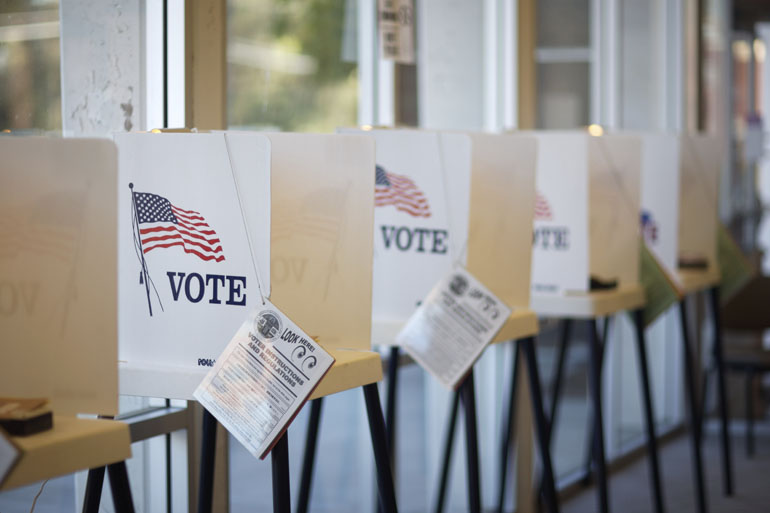California voters will be asked to weigh in this November on a hospital financing measure so politically and financially complicated that they might be tempted to avoid it altogether.
The initiative, Proposition 52, would make permanent the “Hospital Quality Assurance Fee,” which the state collects from private hospitals to bring in additional federal dollars for Medi-Cal, California’s version of the federal Medicaid health care program for the poor. The federal government matches money that California puts up to fund Medi-Cal services.
The dollars generated by the fee are used to fund hospital services and children’s health care under Medi-Cal, and the ballot measure would help ensure the money is not diverted by lawmakers for other uses.
Hospitals like the fee, which has been in place since 2009, because it gives them a big financial boost in what they say is an underfunded government health program. In the 2015-2016 fiscal year, hospitals received an additional $3.5 billion to pay for services they provided to Medi-Cal patients, according to the state Legislative Analyst’s Office.
But the arcane details of the measure might be too much for many voters to sort out, and a lot of them “won’t do any homework,” said Wesley Hussey, associate professor of government at Sacramento State University. “In general, the more complex an issue is, voters usually respond by either skipping the issue itself … or by voting no,” he said.
Kevin Riggs, spokesman for the Yes on 52 campaign, which is sponsored by California hospitals, sought to demystify the initiative. “If you care about…access to Medi-Cal for kids, and old people and working families in California, this is a way to protect [that] program,” he said.
“It’s [a] complicated [measure],” Riggs added but said the campaign will make “a full faith effort to make sure that voters understand.”
The fee is an important part of sustaining hospital care for Medi-Cal enrollees because government payments for patients covered by the program are $8 billion short of what it costs hospitals to provide the services, Riggs said. The revenue generated by the fee totals around $3 billion a year, offsetting about 40 percent of hospitals’ Medi-Cal losses.
The hospitals want voters to make the fee permanent so that the funding arrangement is codified in the California constitution. Since approving the fee, lawmakers have extended it several times.
If Prop 52 passes, the legislature would need a two-thirds majority to change the measure. The only changes allowed would be to ensure compliance with federal law and to modify the way fees are collected and disbursed. Lawmakers would not be permitted to change the proportion of funding that hospitals get back after federal funds are drawn.
Passage of the proposition would make it less likely that the funds could be used for other purposes during an economic recession, said Riggs. In 2011, he noted, lawmakers diverted some of the money to the state’s general fund.
“[Hospitals] see it as a way to provide long-term protection for this agreement and to remove some of the uncertainty that exists with the political process,” said Riggs.
Supporters of Prop 52 include labor unions, business groups and members of both political parties. But one union representing hospital workers, the Service Employees International Union-United Healthcare Workers West (SEIU-UHW), says the initiative is a “money grab” by the hospitals.
“It says to everybody… these tax dollars are not the property of the people of California, but they belong only to the private hospital industry,” said David Kieffer, SEIU-UHW‘s director of governmental relations.
Kieffer said SEIU-UHW supports the arrangement in principle but that the legislature is the most appropriate venue for deciding how to use the money raised. Lawmakers can respond to an evolving health care system, but if Californians vote directly on the hospital proposal, their decision would be harder to undo later, he said.
“I agree that [hospitals] have a say in how it should be used,” Kieffer said. “The issue is… should [hospitals] have the only voice in the process?”
The hospitals say they don’t understand the union’s opposition, since the patients its membership serves would benefit from a more secure government funding stream.
SEIU-UHW has tangled with hospitals over other financial issues. Recently, the union was forced to withdraw a November ballot proposal it had sponsored to limit executive pay at nonprofit hospitals to $450,000 a year.
Hussey, the Sacramento State professor of government, said that in an election year with so many propositions on the state ballot — 17 to be exact — hot-button and easy-to-grasp initiatives such as legalizing recreational marijuana may overshadow the complex hospital fee measure. Many voters will walk into the voting booth having heard nothing about it, he said.
“Fortunately for the proponents,” said Yes on 52 spokesman Riggs, “this is going to be fairly high up on the ballot.”


